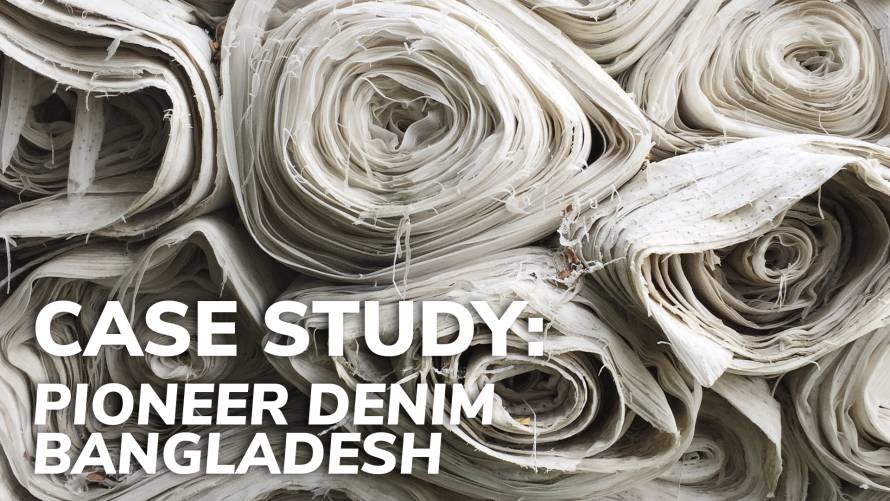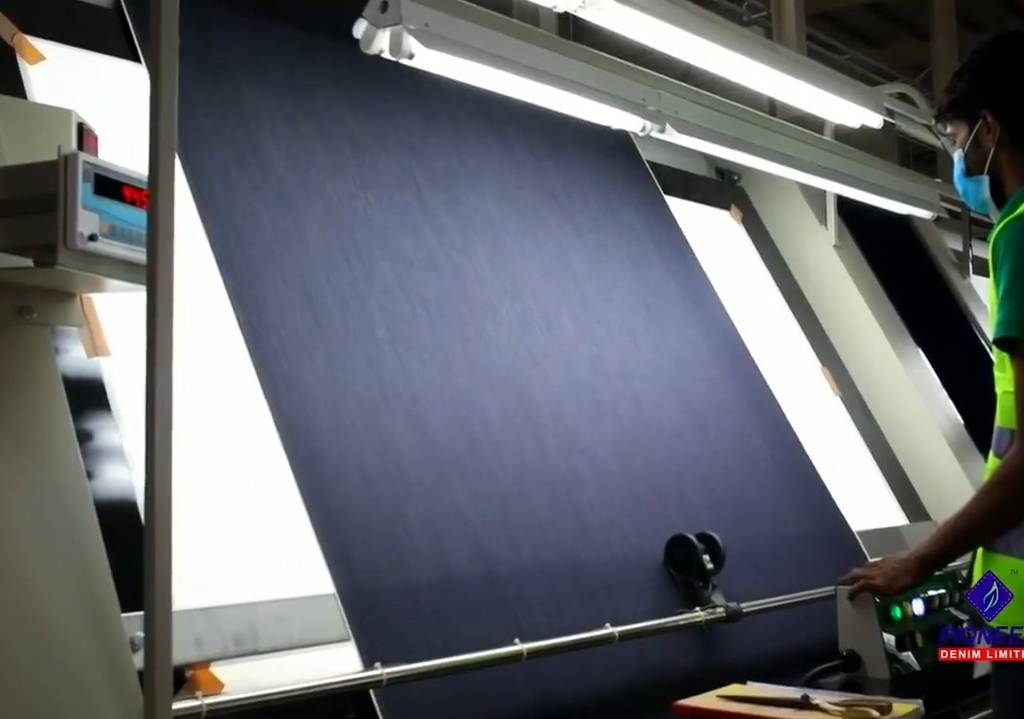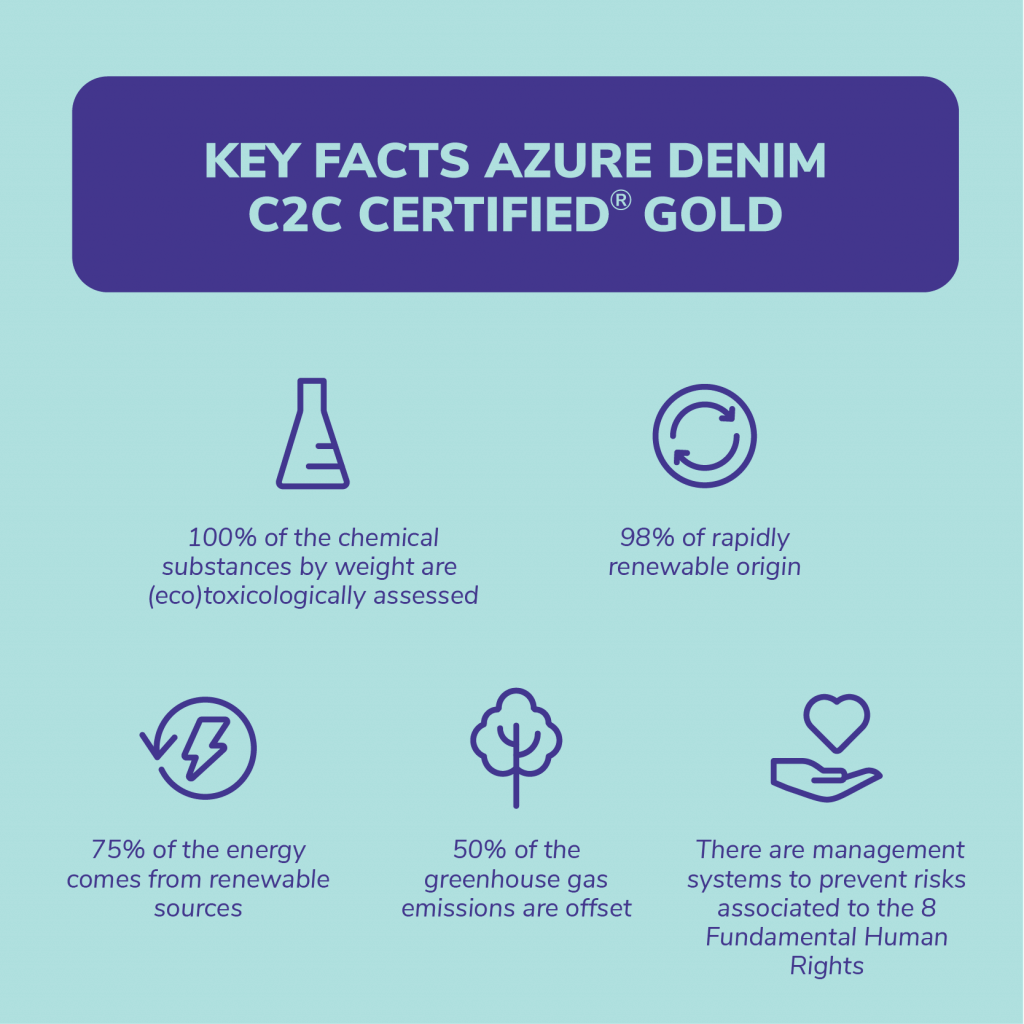
18 June 2021
Pioneer Denim leads the Bangladesh textile industry towards the circular economy
Challenges of the textile sector in Bangladesh
Bangladesh is the world’s second-biggest garment manufacturer, second only to China. The ready-made garment manufacturing accounts for 84% of Bangladesh exports. Despite this, there is a different development in the rest of the value chain. Raw materials are usually imported from other countries in the region, as well as fabrics and accessories.
The success of the Bangladesh textile sector is due to a strategy based on cheap energy and labor, and liberal public policies that promoted foreign investment.
This strategy has accomplished that the production capacity of the country increased four times in ten years. As a result, more than 80% of the country’s export earnings, to 20% of the national GDP, and employs 45% of the manufacturing industry labor force.
To keep the pace of the market and their competitive advantage against other countries that are challenging Bangladesh market share, like Vietnam, the Industry faced big challenges and transformations. Worker’s empowerment and safety as well as vertical Integration are the main strategies Implemented with success. Sustainability Is the 3rd challenge that Bangladesh Is to face. Natural resources depletion and water quality are now critical both for communities and Industries.
Since 2010, the price of industrial electricity in Bangladesh has increased seven times. Nowadays, the prices of electricity in Bangladesh Is higher than in Iceland or Canada. Additionally, according to FAO, in 2007, 8.5% of the total death in Bangladesh was caused by water, sanitation, and hygiene-related issues, affecting economic development. A study by the World Bank reveals that Bangladesh incurred a loss of 6.3% of the GDP due to inadequate sanitation.
Moreover, although the country’s per capita income has increased, the most significant share of the increase in national income has accrued to 5% of the wealthiest population. The remaining 95% of the people hardly benefitted.
Both inequalities and low environmental quality have been reinforcing each other in a pernicious business cycle of poverty, discrimination, and disease.
Most companies find themselves stranded between the need to maintain their leadership in the global market and, at the same time, do not harm their main assets: communities and natural resources.

The Pioneer Denim case
Pioneer Denim was born in 2017, at the heart of Badsha Group of Industries as a vertically integrated company capable of developing 30 million meters of denim fabric from the spinning process to the final product.
Today, the company has a plant of more than 13 hectares awarded as LEED Platinum certified textile mill.
Pioneer Denim Is Investing in innovative technologies to optimize the water cycle with the target of reusing 50% of the treated water back again to its processes by 2023.
Regarding the energy use, Pioneer Denim also combines efficiency strategies with renewable energy onsite production and use. These advances allow the facility to save up to 18% of fossil fuel demand and subsequent greenhouse gas emissions.
The company offers accommodation to its workers and their families, medical services, and recreational spaces in the social sphere. Moreover, it contributes to substantial donations to charitable organizations and has contributed to the construction of 5 education centers in its area of influence.
Pioneer Denim and the Cradle to Cradle Certified® Products Program
Pioneer Denim’s strategy directed toward sustainability and contribution to the local community has facilitated the achievement of another recognition in this field. After a year of work with the help of Eco Intelligent Growth, the company has been awarded with Cradle to Cradle Certified® Gold for its Azure Denim fabrics.
Their C2C Certified® products differentiate from their competitors by several factors:
- High level of traceability of chemical inputs: EIG reached out to the supply chain to obtain full formulations beyond what is mandatory by regulation. In this process, the collaboration with the supply chain was key. The certification ensures that 100% of the chemical substances by weight used in the product were (eco)toxicologically assessed, reduced if necessary, and optimized for environmental and human health.
- Highly circular. The Azure Denim Fabric is recyclable, and 98% of its ingredients are rapidly renewable.
- 75% of the energy used to produce the Azure Denim fabrics comes from renewable sources and over 50% of the greenhouse gas emissions associated to its production were offset with projects from internationally recognized programs.
- The company has management systems to prevent and address potential risks associated to the 8 Fundamental Human Rights within the factory and its direct suppliers

Exemplary achievements in Cradle to Cradle Certified®
The Cradle to Cradle Certified® Products Program improves a company’s advantage in the market. It is a great merit that an independent body ensures that a product is safe and circular.
Any company that wants to transform its business to embed circularity in the textile industry (or in any other sector) should take action to do so. These actions must be part of a cohesive strategy for building a profitable circular business model.
In this sense, C2C Certified® gives the opportunity to develop a coherent strategy for product design, production and circularity. Furthermore, the new version of the Cradle to Cradle Certified 4.0 standard promotes climate action, soil regeneration, improved water quality and increased social justice.
Pioneer Denim is leading the transformation towards a circular economy in Bangladesh’s textile industry. Gaining this certification is the first step. Moreover, it sets an example to other businesses. Only by this means is how Bangladesh may win back its position as leading country in the textile industry.
Cradle to Cradle Certified® is a registered mark of the Cradle-to-Cradle Products Innovation Institute.
Original article by Ester Xicota with the contributions of Aglaia Gómez D’Alessandro and María Colantoni.